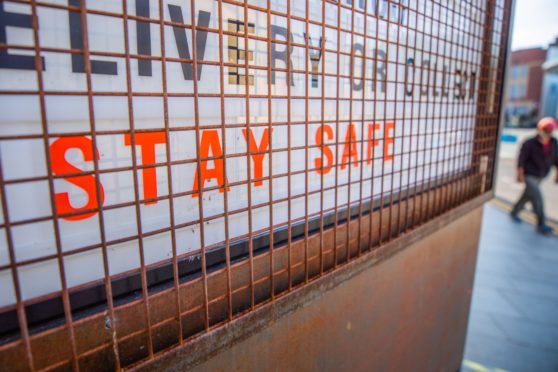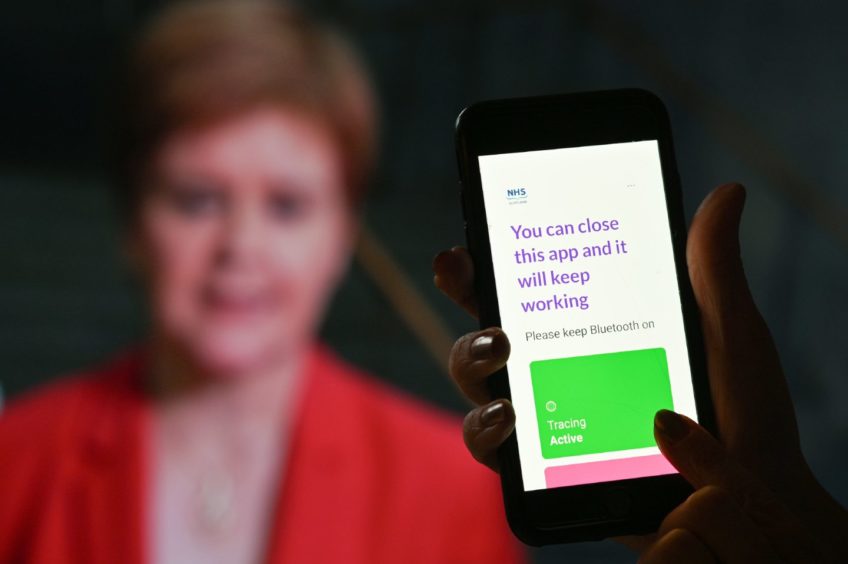Nicola Sturgeon has confirmed Scotland will enter a new five-tier coronavirus alert system from next month.
The new measures, which will come into force on November 2, will be part of a “strategic framework” to help manage the acceleration of virus cases through the winter months and early part of next year.
It will involve different levels of restrictions that can be applied nationally or regionally depending on the level of infection. Current temporary restrictions have been extended by an extra week until the tiered system comes into effect.
The first minister confirmed the middle three tiers of the strategy will be “broadly equivalent” to the medium, high and very high alert levels already introduced in England but Scotland will add an upper and lower level.
This would be similar to the five-tier system introduced in Ireland and other countries across the world – and could be a response to England’s chief medical officer warning that the three-tier approach will not be enough to bring the virus under control.
What do each of the five tiers involve?
Speaking at the daily coronavirus briefing on Wednesday, Ms Sturgeon said the lower level will be “the closest to normality that we can reasonably expect to live with until we have a vaccine or a more effective treatment for this virus”.
She said: “When England published their system the chief medical officer at the time said he thought the top level was not enough to necessarily, in all circumstances, get the virus down.
“We think we need one above that, not identical to but perhaps close to a full lockdown, if things got to be that serious.”
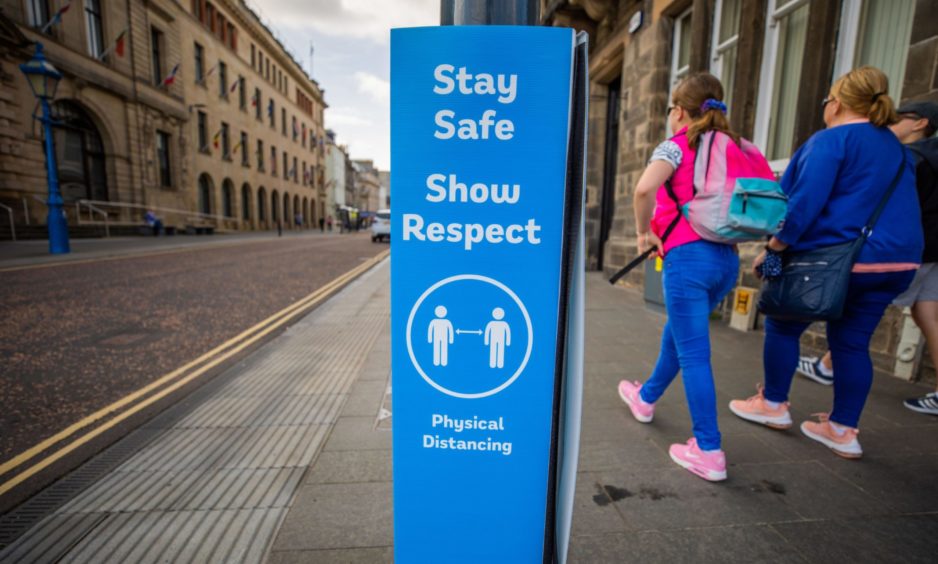
Ms Sturgeon said she wanted to keep schools open wherever possible, regardless of what tier an area is in, but said decisions may need to be taken on a case-by-case basis, and she would not rule out a return to blended learning in some schools.
What kind of support will be available?
The level of support on offer will be “broadly similar” to that in other parts of the UK and will be the “maximum that the Scottish Government is able to provide within the resources available”.
However, ministers are set to pursue “urgent discussions” with the UK Treasury about providing further support for businesses and individuals because the current offering will be the minimum the Scottish Government thinks is necessary.
The first minister was asked during the briefing whether support packages for local areas could be tied to each of the five tiers, population or some other measure.
But Ms Sturgeon said there would instead be a “standard package” not tied to tiers but whether businesses are legally forced to close or legally required to restrict their business in some way.
She said this approach had been taken because firms could be compelled to shut their doors again across across multiple alert levels.
Could additional measures be brought in?
The first minister said that she wanted to be clear that she could not rule out that the new approach “will entail further extension of existing restrictions, or tougher ones if we think that is necessary to safeguard life”.
“It’s also important to be very clear that our decisions will be balanced by the assessment of the wider harms that Covid and the measures taken to tackle it are having – the wider harms to health as well as jobs and livelihoods,” Ms Sturgeon said.
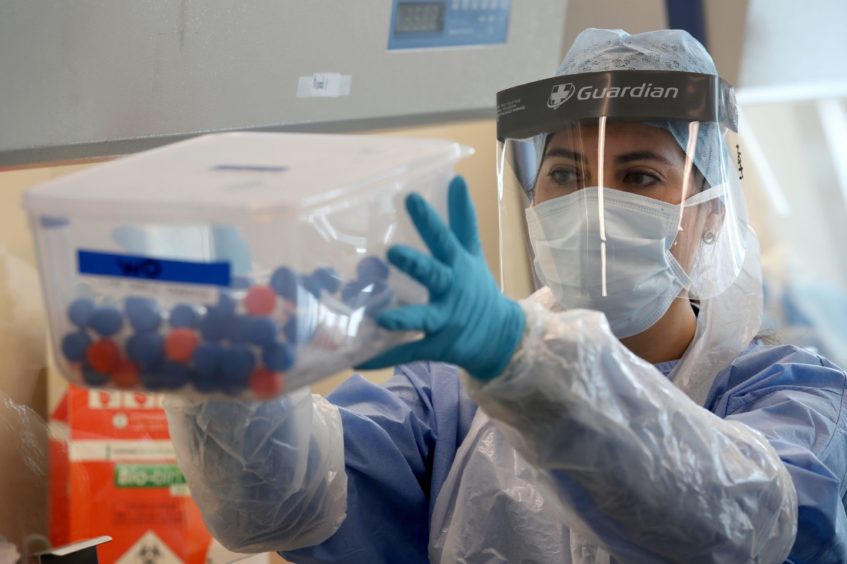
The first minister was reluctant to give away further detail before the plans are officially published on Friday but we do know what is currently in place south of the border.
It is not clear what, if any, of these restrictions will be introduced as part of the middle-three tiers announced by the first minister on Friday.
The current rules in England are:
Local Covid alert level: Medium

- You must not socialise in groups larger than six, indoors or outdoors (other than where a legal exemption applies).
- Businesses and venues can continue to operate, in a Covid-secure manner, other than those that remain closed in law.
- Certain businesses are required to ensure customers only consume food and drink while seated, and must close between 10pm and 5am.
- Businesses and venues selling food for consumption off the premises can continue to do so after 10pm as long as this is through delivery service, click-and-collect or drive-through.
- Schools and universities remain open.
- Places of worship remain open, subject to the rule of six.
- Weddings and funerals can go ahead with restrictions on numbers of attendees.
- Exercise classes and organised sport can continue to take place outdoors, or indoors if the rule of six is followed; there are exceptions for supervised activities for under-18s, and disability sport
- You must wear a face covering in areas where it is mandated.
- You should continue to follow social distancing rules, work from home where you can effectively do so, and plan ahead to avoid busy times and routes when travelling.
Local Covid alert level: High (on top of Medium restrictions)
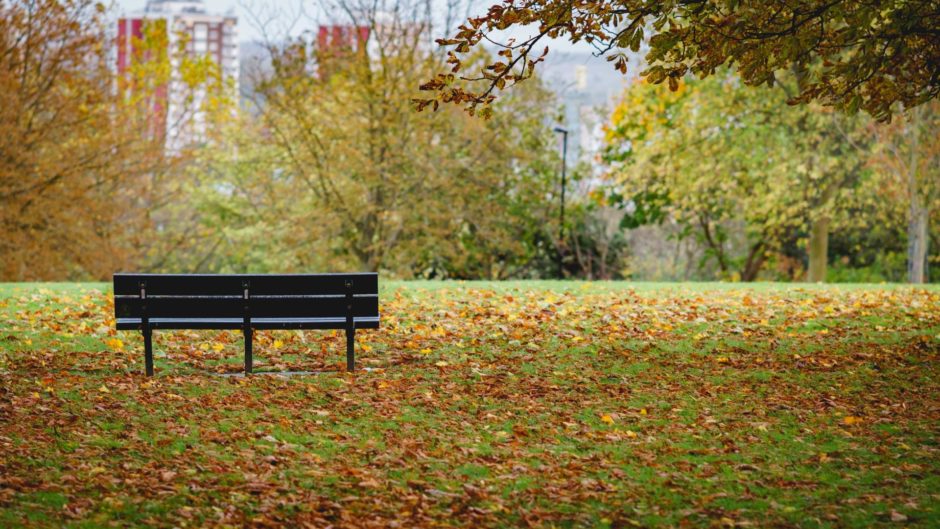
- You must not socialise with anybody outside of your household or support bubble in any indoor setting, whether at home or in a public place.
- You must not socialise in a group of more than six outside, including in a garden or other spaces like beaches or parks (other than where specific exemptions apply in law).
- Exercise classes and organised sport can continue to take place outdoors; these will only be permitted indoors if it is possible for people to avoid mixing with people they do not live with or share a support bubble with; there are exceptions for supervised activities for under-18s, and disability sport.
- You can continue to travel to venues or amenities that are open, for work or to access education, but should look to reduce the number of journeys you make where possible.
Local Covid alert level: Very high
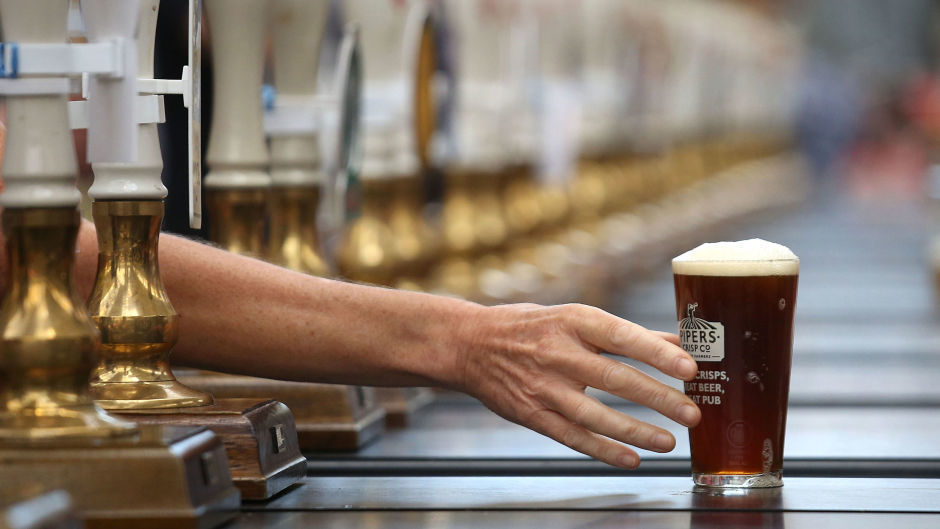
This is for areas with a very high level of infections and where tighter restrictions are in place. The restrictions placed on areas with a very high level of infections can vary, and are based on discussions between central and local government.
At a minimum, this means:
- You must not socialise with anybody you do not live with or have formed a support bubble with, in any indoor setting or in any private garden or at most outdoor hospitality venues and ticketed events.
- You must not socialise in a group of more than six in an outdoor public space such as a park or beach, the countryside, a public garden or a sports venue.
- Pubs and bars must close; they can only remain open where they operate as if they were a restaurant, which means serving substantial meals, like a main lunchtime or evening meal, and they may only serve alcohol as part of such a meal.
- Places of worship remain open, but household mixing is not permitted.
- Weddings and funerals can go ahead with restrictions on the number of attendees; however, wedding receptions are not allowed.
- You should try to avoid travelling outside the very high alert level area you are in or entering a very high alert level area, other than for things like work, education or youth services, to meet caring responsibilities or if you are travelling through as part of a longer journey.
- You should avoid staying overnight in another part of the UK if you are a resident in a very high alert level area, or avoid staying overnight in a very high alert level area if you are resident elsewhere.
